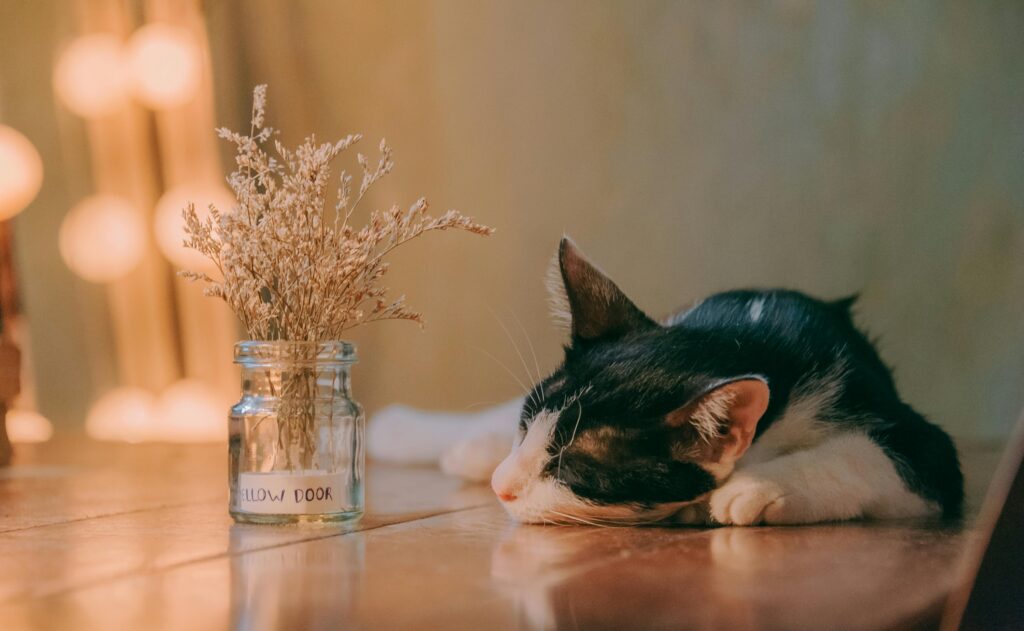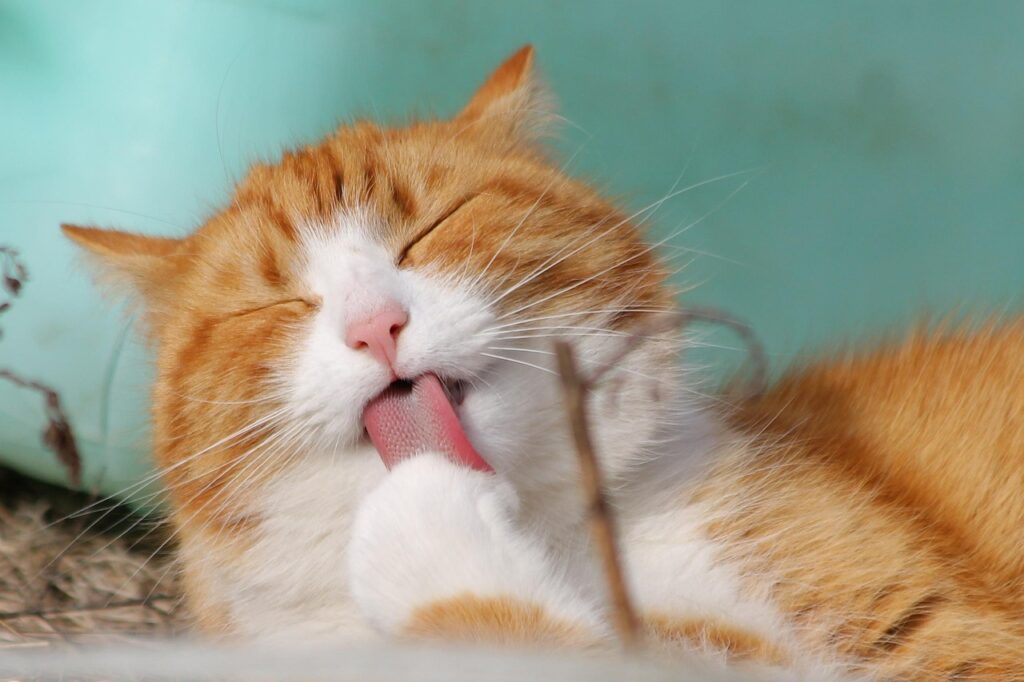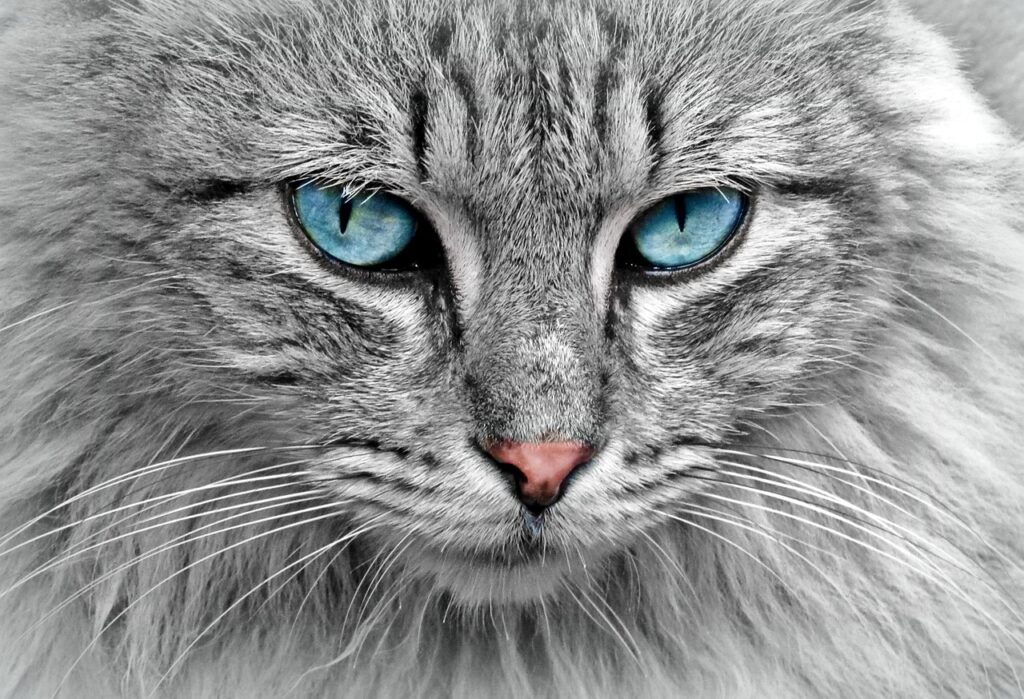“Is your cat getting older? How can you tell?”
We all love our cats. We’ve seen them play on our pillows, and now, as they age, their energy levels begin to decline. Caring for a senior cat comes with its own challenges and rewards.
As the cat ages, their bodies go through several changes. They have a slow metabolism, mobility, and sensory abilities.
Today, I’ll discuss some signs of your cat’s aging and how to help her age well.
Is Your Cat Senior?
There is no specific age for cats to be considered senior. Thanks to our improved healthy diets, our cats age slowly. With proper care, indoor cats often live between 12-18 years, with some reaching their 20s
Also, Indoor cats tend to live longer than outdoor cats.
Let’s see if your cat is aged or not.
- Kitten: 0-1 year old
- Adult Cat: 1-6 years old
- Senior Cats: 11-14 years
- Geriatric (Super Senior) Cats: 15+ years
Understanding Senior Cat Health

So, if your cat is in the senior category, you might notice some changes in them. Some of them are:
- Longer and more frequent naps
- Increased nighttime activity (common in older cats)
- Changes in appetite (eating less or more)
- Loss of hearing or weak eyesight
- Its immune system will be weaker
- Its muscles will become weak
- It will show less physical activity
Common Diseases In Senior Cats

As humans develop diseases when they grow older, our furry friends do too. There are chronic health conditions in cats when they become senior that you should be aware of.
Some of the diseases are discussed below:
Dementia
If you see your cat forgetting things and start to lose its memory, then these are signs of dementia. You can not diagnose dementia through any test, but behavioural changes help you to understand.
Hyperthyroidism
In older ages, cats might produce more thyroid hormone, which then causes Hyperthyroidism. Cats might lose weight due to this disease. However, it is also possible through increased appetite. Better to get it diagnosed correctly.
Diabetes
Like most humans, Cats also get diabetes due to physical inactivity and obesity. It can be treated with the use of insulin injections and a healthy diet of low carbohydrates.
However, improper glucose metabolism can also be the cause.
Cancer
Cats do get cancer, but there is no obvious reason for this. Most research says it can be due to genetic, environmental factors, or viruses.
It can be treated with surgery or chemotherapy, depending on what the doctor tells you.
Kidney Disease
Some cats also get chronic kidney disease after the age of 7. However, it is also manageable with diets and some special fluids.
How To Help Them Age Well

Just like we humans develop tantrums, cats, too, become moody in old age. They will require some extra care and support. As a pet parent, you will love to spoil your feline.
To nurture them, you can follow these tips.
Regular Vet Visit
Prevention is always better than getting a disease. So, take your cat to the vet regularly. Getting an early diagnosis of the disease will help your cat have a good chance of recovery.
Keep a watchful eye on your cat; in case of any illness, immediately go to the doctor.
Cats Diet
Older cats may require a special diet. With the growing age, their body can not absorb nutrients as it used to. They have fewer movements, so their energy requirements also decrease. So, in this case, a well-balanced diet is a must.
Choose a diet that is low in calories, rich in protein, and easily digestible fats. Have a conversation with your vet doctor, discuss what and when you should give your cat food.
Balanced Weight
If your cat is gaining weight, be concerned!
This is the very first sign of illness. Ask your veterinarian to help you achieve the optimum weight of your cat. You can also get recommendations to maintain weight.
Groom Your Cat
Groom your cats now and often. As it will not only improve their health but also prevent painful mats and tangles. Here’s how you can groom them.
Brush and Bath regularly
You will notice your cat is not taking care of herself as she is getting older. This is the time you have to come into action. Give a nice brush and bath to your pet on a regular basis.
Don’t use harsh chemicals on your pet’s skin.
Clip Your Cat’s Nails
Keep an eye on their claws. Older cats do need claw trimming, If you do not trim them, they will get curled and start growing into the foot. You can take them to the vet spa to give them a nice cut.
Physical And Mental Activity
Senior cats sleep more, which means their mind are most of the time sluggish and lazy. Your kitty is also doing the same!
To keep their mind active and alert, you can take some tips
- Play games with them
- Engage them with new toys
- Throw things, and your cat will chase them.
- Hide things and make your catch find it.
Keep Things Stationary
Older cats do not like a lot of movement. So, keep their things in one stationary position. Just does not change the position often. Make things accessible to them.
It will also help if your cat is blind.
Conclusion
As cats get older, they naturally struggle with a lot of things. You can improve their well-being by keeping a keen eye on them. If your cat is struggling with any of the symptoms, immediately take her to the doctor. Don’t forget about their hygiene.
Ready to help your vet? Take him to a vet doctor today!



